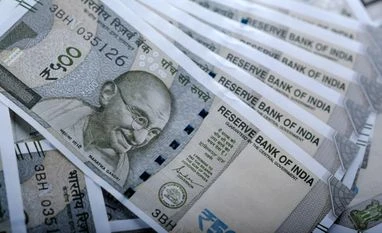The rupee depreciated to a new low to settle at 84.41 per dollar on Thursday as the US currency strengthened and foreign investors continued selling domestic equities, said dealers.
The local currency has been touching fresh lows for the past few trading sessions. On Wednesday, it had settled at 84.39 per dollar.
The dollar index rose to 106.66 per cent on Thursday post the US CPI data. Dollar index measures the strength of the greenback against a basket of six major currencies.
US inflation has remained stubbornly high, with the latest data showing a 2.6% year-over-year increase in headline CPI and a 3.3% rise in core CPI. The yield on the benchmark 10-year US Treasury bond rose to 4.48 per cent.
“The rupee is currently weighed down by persistent inflation and significant foreign outflows. A major concern for foreign investors is India’s real yields, which have dropped to just 0.61%. In contrast, China offers 1.80% and the US delivers 2.04%, making Indian assets less attractive in real return terms. This, coupled with India’s inflation surge, is adding additional pressure on the currency,” said Amit Pabari, managing director at CR Forex
Additionally, China’s recent 1.4 trillion-yuan stimulus, coupled with expectations of more fiscal support, has strengthened Chinese markets and added downward pressure on Indian assets. Since October, India has witnessed around $14 billion in net outflows.
“The US 10 years yield upward movement has kept the currencies well offered and the dollar well bid and has not allowed any correction in the current downward trend,” said Anil Kumar Bhansali, head of treasury and executive director at Finrex Treasury Advisors LLP.
On the domestic front, India’s CPI for October rose to 6.21 per cent, exceeding market expectations. The higher inflation was largely driven by food prices, which surged to 10.87 per cent from 9.24 per cent in the previous month. While elevated inflation was anticipated, the print above 6 per cent—the upper limit of the RBI’s tolerance band—raises the likelihood that the Monetary Policy Committee (MPC) may delay any policy easing.
)